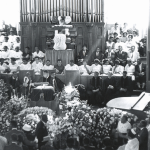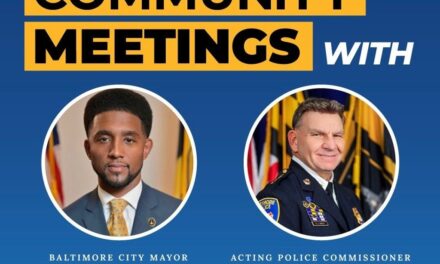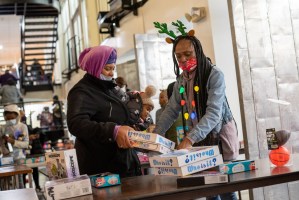By Barnett Wright
The Birmingham Times
President John F. Kennedy expressed “outrage” and “grief” one day after Sixteenth Street Baptist Church was bombed in 1963 killing Cynthia Wesley, 14, Denise McNair, 11; Carole Robertson, 14; and Addie Mae Collins, 14.
In a statement, he said: “I know I speak on behalf of all Americans in expressing a deep sense of outrage and grief over the killing of the children yesterday in Birmingham, Alabama. It is regrettable that public disparagement of law and order has encouraged violence which has fallen on the innocent. If these cruel and tragic events can only awaken that city and state-if they can only awaken this entire nation-to a realization of the folly of racial injustice and hatred and violence, then it is not too late for all concerned to unite in steps toward peaceful progress before more lives are lost.”
Sixteenth Street Baptist Church will observe the 60th year commemoration of the bombing on September 15 at 9:30 a.m. with Associate Justice Ketanji Brown Jackson, the first Black women on the Supreme Court of the United States, as the memorial service speaker.
After the bombing in 1963, Birmingham took on the appearance of a battle zone, with 300 state troopers, 450 police officers, 150 sheriff’s deputies, and 300 federalized National Guards men patrolling the streets.
Besides the deaths of Wesley, McNair, Robertson and Collins, in the church bombing and Virgil Ware, 14, also died that day after being shot at the hands of two young white men while another Black, Johnny Robinson, had been shot in back by police for throwing rocks to protest the church bombing.
On Tuesday, Sept. 17, 1963 a funeral was held for Carole Rosamond Robertson before 450 people, including 50 whites, at St. John’s A.M.E. Church. The Rev. John Cross said the church bomber “did not only bomb the Sixteenth Street Baptist Church, did not only kill these lovely, innocent girls, but somehow the whole world was shaken. People everywhere died.”
Words of the Apostle Paul were used as the text of Carole’s eulogy. “All things work together for the good of them that love the Lord. Accept those words,” Cross told Carole’s family, seated in six pews just to the right of the pulpit. Carole’s parents, Mr. and Mrs. Alvin Robertson, sat on the front row. She was their third child.
On Wednesday, Sept. 18, 1963 three coffins covered with floral arrangements were the focal point for a sea of somber faces that filled every available spot at Sixth Avenue Baptist Church. Funeral services for those three of the four girls crushed to death in the Sunday morning bombing just three days earlier, brought out a crowd that numbered in the thousands.
An hour before services began mourners and spectators were in balconies and Sunday school rooms. The main body of the church was reserved for families and friends of Cynthia Dianne Wesley, Addie Mae Collins, and Carol Denise McNair. Long after the 2,000-seat church was filled to capacity, people continued to crowd into the aisles and alongside corridors. More than 200 ministers, about half of them white, sat in a place reserved in the back of the church auditorium.
An estimated crowd of 6,000 were inside and outside the church. Dr. Martin Luther King Jr. speaking from the black-cloth-draped pulpit, called the girls “the modern heroines of a holy crusade.”
He said, “We must not harbor the desire to retaliate with violence. We must not lose faith with our white brothers.”
Dr. King predicted the deaths “may well serve as the redemptive force that brings light to this dark city … may cause the white South to come to terms with its conscience.”
After the service, an estimated 4,000 people outside the church watched as the coffins and families emerged into the late-afternoon sunlight, one at a time. The three hearses moved away slowly through the masses, the people parting to let them and the families through. Cynthia and Addie Mae were buried in Woodlawn Cemetery; Denise at Shadow Lawn Cemetery, where her friend, Carole, had been buried that Tuesday.
With the theme of “Looking 60 years forging Justice for a Better World,” the historic Sixteenth Street Baptist Church will commemorate the 60th year anniversary of the church bombing on Friday, Sept. 15 at 9:30 a.m. The morning will feature a special keynote by the first African American female U.S. Supreme Court Associate Justice Ketanji Brown Jackson. For more information, go to www.16thstreetbaptist.org.











